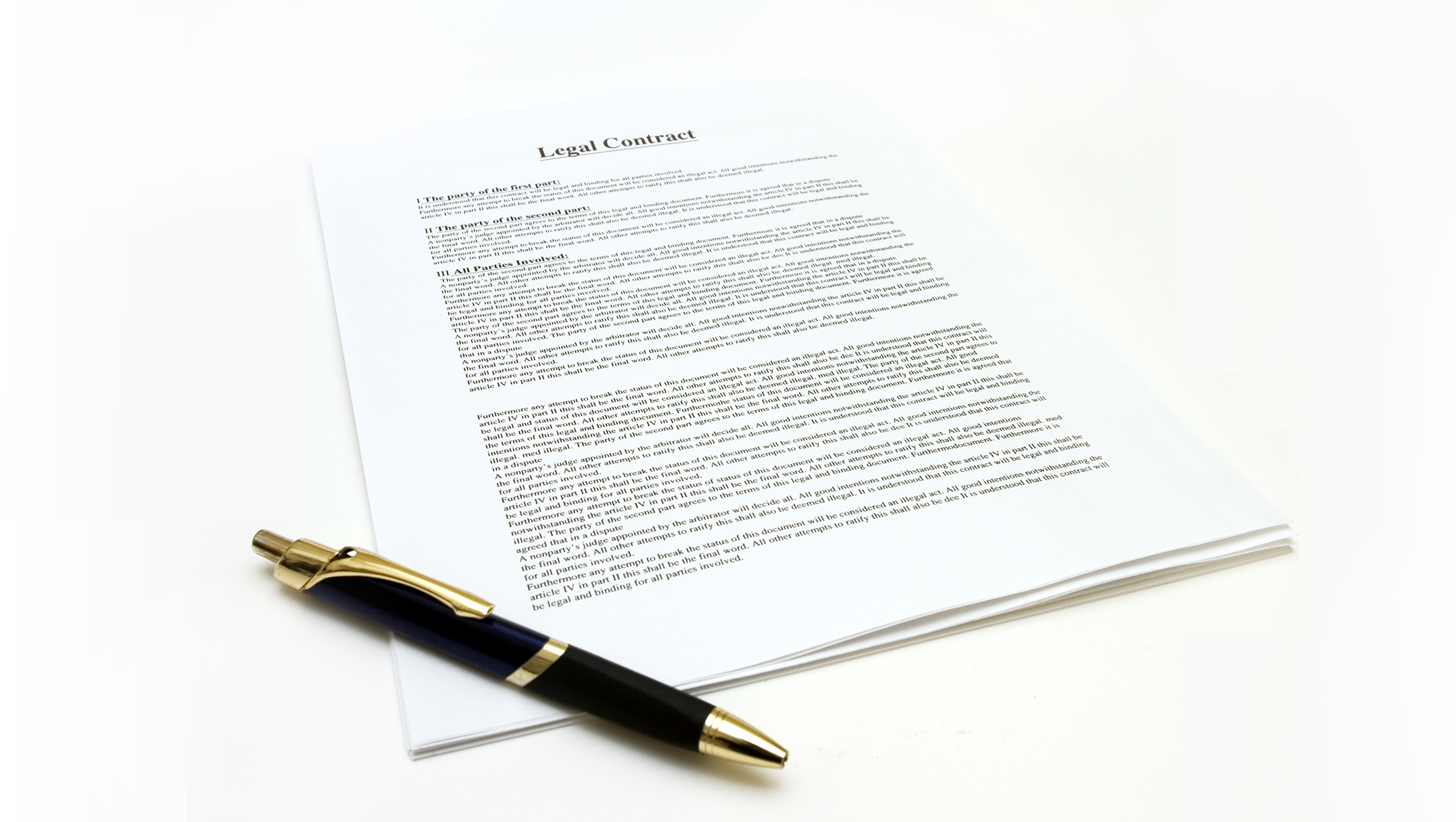Contractual Obligations During the Coronavirus Pandemic: Avoidance, Enforcement, and Renegotiation

As coronavirus-related quarantines, government shutdowns, and widespread layoffs bring the world economy to a halt, some businesses may be unable to meet their existing contractual obligations, and others may be stuck with contracts that no longer serve any purpose. To survive in this rapidly changing and uncertain environment, business owners and executives need to understand a few basic legal concepts and contractual provisions that may allow them to avoid agreements that are no longer workable, or otherwise renegotiate and restructure them.
What is Force Majeure?
The coronavirus pandemic has disrupted business around the world, creating worker shortages, freezing supply chains, and leading to large-scale closures. As a result, many businesses are burdened with contracts they can no longer perform, or which they can perform only by incurring substantial financial losses. For some, however, financial loss may be avoidable, and relief may be found in boilerplate language of those very same agreements.
Buried in the usual terms and conditions of many commercial contracts is a force majeure clause. French for “superior force,” a force majeure provision allows parties to avoid or delay performing their contractual obligations when performance would be impossible because of an unforeseen event beyond the parties’ control. Depending on the language used in the force majeure clause, the coronavirus pandemic, and resulting quarantines and related government actions, may qualify as such an event.
Why Does the Contractual Language Make a Difference?
Some force majeure clauses permit a party to avoid its obligations only if performance was actually “prevented” by the unforeseen event. “Prevent” and similar terms in a force majeure clause could require that a party’s performance be physically impossible or legally impermissible before the defense is available. Others, however, use more liberal terms, like “delayed” or “hindered,” which lend themselves to a broader interpretation, and which may offer a defense to performance even though it might not actually be, in the strictest sense, impossible to perform the contract. Still others list the specific events that are covered or excluded—such as pandemics, labor and supply shortages, changes in law, and national emergencies.
What other Circumstances Determine Whether Force Majeure Applies?
In addition to the specific contractual language used, the nature and type of business, and how its operations were impacted by the pandemic, government actions, or supply and labor disruptions, will all be critical when evaluating whether a force majeure defense exists. As examples, some businesses in Minnesota have been completely shuttered during the pandemic due to government closures, others are functioning but only in a limited or different capacity, and others are unaffected by direct regulation but have lost their customer base. The scope and application of the force majeure clause will necessarily be viewed and interpreted in light of all of these and other particular circumstances.
How Does a Business Invoke the Protections of a Force Majeure Clause?
If a force majeure defense is available, a business must act promptly or risk losing its protections. Most force majeure provisions require the affected business to notify other parties within a certain period of time that it will be unable to perform its obligations. Failure to comply with the contractually mandated timing and notice provisions could result in a waiver of the defense. When giving notice, parties should take particular note of the relief available under the force majeure provision they are invoking, because some provisions allow termination of the contract, while others allow only a delay in performance.
After providing notice, businesses should provide regular updates to the other parties regarding any continued business disruption and, if possible, should use diligent efforts that are reasonable under the circumstances to minimize the negative consequences of any delayed performance. As with most legal claims and defenses, businesses should also retain and document all evidence of any disruption and its financial effects to protect themselves in the event of future litigation.
What Should a Business Do if it Receives a Force Majeure Notice?
On the flip side, businesses that are on the receiving end of a force majeure notice should also respond quickly, because failure to timely object may constitute acceptance. If a business receives a force majeure notice, it should evaluate whether the other party has adequate grounds to invoke the defense, how that notice will impact its own operations, and whether it too should consider sending a force majeure notice in connection with other related contracts and obligations that have been affected.
Are there Other Contract Clauses that May Offer Relief During the Pandemic?
If a force majeure clause does not exist, or if it does not cover the current pandemic or a business’s unique circumstances, businesses may still find relief or flexibility under other contract provisions including, among others:
- material adverse event provisions;
- provisions addressing changes to the law;
- price adjustment provisions;
- liability limitations and exclusions;
- provisions that excuse delayed performance or allow extension of performance; and
- conditions precedent (i.e., conditions that must occur before performance is required).
As with any contract provision, whether any of those listed above will offer relief depends on the specific language used and the surrounding circumstances. And, to ensure that valuable rights and defenses are not lost, careful attention should also be paid to the contractual language governing how a party can obtain relief, including notice, cure, modification, and dispute resolution provisions.
Are there Other Legal Concepts that May Excuse Performance?
Even in the absence of a force majeure clause or other applicable provision excusing performance, businesses should not be too quick to assume that they have no viable defense to nonperformance. Under Minnesota’s common law, and that of other jurisdictions, parties may be excused from performing a contract (or allowed to delay its performance) if performance is impractical or impossible. Whether a contract is “impractical” or “impossible” to perform is a complicated question that depends on, among other things, which state’s law applies, the nature of the contract and its obligations, and the events that impede performance.
Minnesota and many other jurisdictions have narrowly construed the common law impracticability and impossibility defenses, so businesses should carefully evaluate how the pandemic has impacted their operations with the assistance of legal counsel to determine whether a viable common law defense may exist.
What about Renegotiation?
In some circumstances, a business cannot or does not want to avoid performance or payment obligations altogether, but just needs some temporary accommodations. In situations like that, contract negotiations may provide another avenue to stem future losses or account for changing circumstances caused by the current crisis. Parties are always free to renegotiate the terms of a contract, and because nearly everyone in Minnesota and around the country is feeling the strain of the coronavirus pandemic at this moment, there may be no better time for businesses to amend their existing agreements.
Before reaching out to other parties to discuss modifying their agreements, however, businesses are well-advised to first have a good understanding of their contractual rights, obligations, and defenses. Having a good faith defense to nonperformance (or delayed performance) on the one hand—or credible grounds for enforcing the contract on the other—can be a powerful tool in any negotiation.
Businesses should also be open to creative solutions in these uncertain times. A business could, for example, accept deferred payments while still protecting its financial interests by, among other things, coupling the deferral with a personal guarantee from the other party, obtaining a UCC lien on certain assets, or obtaining a mortgage on real property. Others may be better positioned to work out a simple abatement, where keeping a tenant or client who will pay in the future is better than having none. The options for restructuring an agreement are limited only by the willingness of the parties to confer with one another to reach a mutually acceptable solution.
What about Insurance?
Many businesses may have existing insurance policies that cover financial losses caused by the coronavirus pandemic. The same disruptions that have made it impossible for some businesses to perform under their contracts may also be grounds for obtaining insurance coverage. For more information about insurance coverages that may protect businesses from financial losses caused by the coronavirus pandemic, see Coronavirus and Insurance Coverage: Does your business have insurance coverage for losses caused by the coronavirus pandemic?
Let us help
At Henson Efron, we are committed to helping our clients navigate these difficult and uncertain times, and our knowledgeable team of attorneys is ready to provide you with the assistance and advise you of your rights. For more information, please call 612-339-2500 or send us an email.







